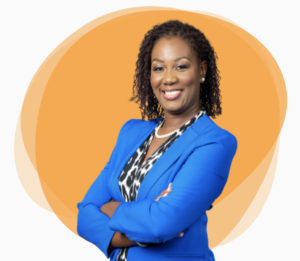What Makes a Good Teacher
- Venessa Powell
- January 7, 2023
- No Comments
Think about five words or phrases that you would use to describe a good teacher when you ask the question, what makes a good teacher? Write them down.
Did your list include any of these words?
Warm, accessible, enthusiastic, caring, respectful, passionate, confident, empathetic? So did mine.
Of all my teachers in primary school, my grade 3 teacher is the most memorable. She played the harmonica! Every Friday after lunch the teachers would remove the chalkboards that separated the classes so that we could all sing along to a variety of Jamaican folk songs while she played. She would close her eyes and play, swaying rhythmically from side to side, keeping time with her feet. We LOVED it. The boys drummed on the desks and danced. The girls, crammed four at a time to fit onto the wooden benches, hugged each other and rocked from left to right, singing at the top of our lungs. Those were fun times. I thought she was the best. I would watch her in awe and think ‘When I grow up, I want to be able to play the harmonica as she can’. Can I recall any of her lessons? Not even one.
Now think about this. Would you use the five words/phrases you wrote down to describe a good doctor? Carpenter? Hairdresser? Maybe but unlikely.
When we think of these occupations or professions, we rate them according to the degree to which they carry out their jobs well. A good doctor is one who can assess your symptoms, ask the right questions to accurately diagnose your ailment, then prescribe/administer the right treatment so you can be relieved with the least number of side effects. A good carpenter is one who can select the appropriate material and utilise his craftsmanship to create durable furniture to serve its purpose well. A good hairdresser is one who can assess the quality of your hair, recommend an appropriate treatment (if required), and style your hair in a manner that you will find pleasing. If you choose a style that is not going to fit your features, you expect them to tell you. If not, you would be livid.
How then do we describe a good teacher?
When I became a teacher, the feelings I had in my grade 3 class became my frame of reference. I still couldn’t play the harmonica, but I tried so hard to make my students enjoy my class because that’s the subliminal message I got about what being a good teacher entailed. Of course, I taught my content and gave tests, but fun was at the forefront of my mind when I selected activities. It was crazy hard to make math fun. I had many tearful nights because I could barely find activities to make the content fun. In lieu of fun, every now and then I would take a break from the lesson just to allow them to talk about what was on their minds unfiltered. I would also sit with them under the trees during break or lunchtime so they could have access to a caring adult. I wanted them to know that they were seen, heard, and respected. They loved it. This, however, was not enough. They still struggled with math, and I felt like I was failing them.
I was failing them. I was focused on what I had heard many speak of when they spoke of their favourite teachers – those personality traits that would no doubt make the classroom a more welcoming place. I was failing my students and had no idea what to do to help them because there was only so much ‘nice’ that I could muster. Not even once during my teacher training or during my first few years of teaching do I recall anyone homing in on the development of the technical skills that make great teachers. Yes, I was taught how to write a lesson plan, create a test, and use motivational strategies to keep students’ attention. What I was not taught was how to adopt a clinical approach to my practice so that I could be more effective. I was not taught how to dissect my lessons, using student work as evidence, to assess the quality of instruction I provided. None of the workshops I attended over the years addressed this and I saw none of my colleagues doing so either. If they did, I was unaware.
Over the years, my experiences as a Mathematics Instructional Coach, Test Development Officer, and Certified Specialist in the Danielson Framework for Teaching have taught me A LOT. A lot that I thought I should have learnt in teachers’ college. Every time I sit in classrooms observing teachers, I feel their pain. The training I had did not prepare me for many of the pedagogical challenges I encountered in the classroom. I was not prepared to diagnose student misconceptions, and design assessments to elicit different levels of thinking to make a proper diagnosis so that I could plan a course of remediation or extension. Content knowledge I acquired for sure but pedagogical content knowledge and competence in pedagogy, not so much. I have heard many teachers express the same concerns during our post-observation conferences and otherwise.
This is where professional development comes in. Our initial training barely scratches the surface of the complex skills we must acquire to design high-quality learning experiences for our students. Frameworks such as the Danielson Framework for Teaching delineate the practice of teaching into over 70 elements that can serve as the bases for targeted professional development. Just as surgeons upskill in specific competencies to stay relevant in their practice, so too should teachers take intentional steps to become better at what they do.
With that said, I will ask again. What makes a good teacher?
P.S. You may also find these articles interesting
Like this article?

Venessa Powell
I never wanted to become a teacher. As a matter of fact, anybody who knew me knew that I was set on becoming a graphic designer. Some would say it was by divine intervention others may call it the universe redirecting me, but circumstances led me to teachers’ college at the end of high school where I pursued secondary mathematics education.


